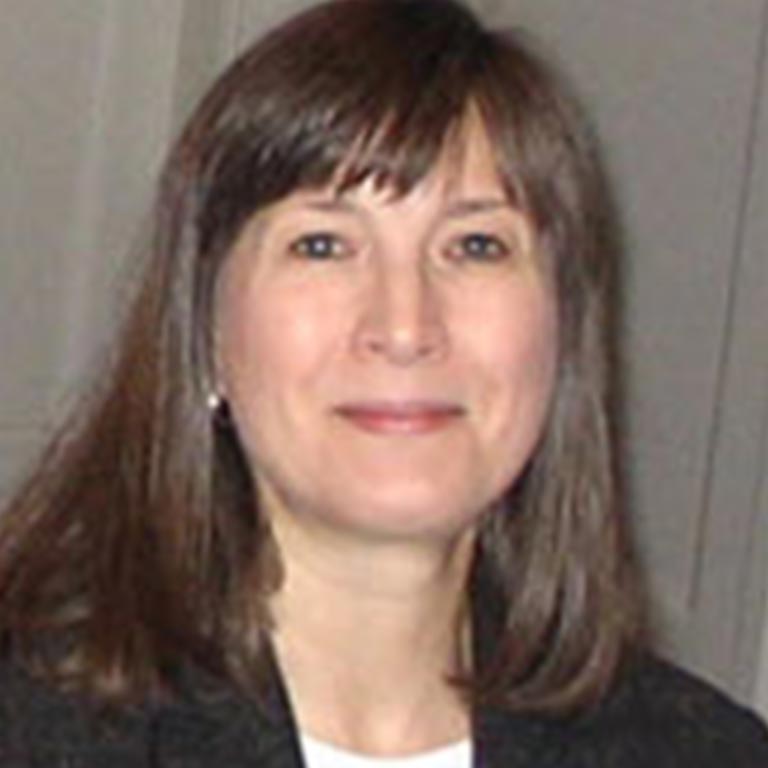- B.A., Yale College
- M.A., Yale University
- M.Phil., Yale University
- Ph.D., Yale University

Rosemarie McGerr
Professor, Comparative Literature
Adjunct Professor, English
Affiliate, Medieval Studies

Professor, Comparative Literature
Adjunct Professor, English
Affiliate, Medieval Studies
My research and teaching interests lie primarily in the study of medieval European literature in its cultural context, including history, law, religious studies, the visual arts, and music. Most of my research is on texts written in medieval Latin, English, French, but I study them in relationship to the other literatures of medieval Europe. I am particularly interested in the ways that the forms in which medieval texts circulated, such as manuscript books and oral performance, shaped meaning in these works. I am also interested in the ways in which narrative, gender, and post-colonial theory can help illuminate aspects of medieval texts. Many of my publications have been about texts that cross boundaries of various sorts--translations, illustrated texts, lyric and dramatic performances, and scholarly texts that have been adapted for new audiences. For example, my 2011 book A Lancastrian Mirror for Princes: The Yale Law School Manuscript of The New Statutes of England studies how this fifteenth-century manuscript shapes its presentation of English law through illustrations and introductory texts to expand the book’s representation of kingship and justice, giving voice to political and social tensions at play in England during this time.
In my teaching, I try to help students engage with the content and forms of medieval literature, as well as its cultural context, including comparisons between texts from Europe, Asia, and the Middle East. The medieval period has often been either demonized or romanticized by later generations, so many people have misconceptions about the sophistication and diversity of medieval texts. Students are often surprised to learn that medieval literature includes texts written by women, texts that challenge religious and political authority, and texts that illustrate the benefits resulting from interactions of people of different faiths, genders, languages, and social classes. For example, in my course on medieval lyric poetry, we look at images of medieval manuscript copies of the poems and, if musical notation survives, we discuss the relationship of the verbal and musical structures. We discuss different kinds of performance related to lyric poetry, including competition for patronage, representation of gender and class, and expression of religious faith. The course takes a special look at the lyric poetry written on the Iberian Peninsula, where Christian, Jewish, and Muslim lyric traditions flourished in dialogue for centuries during the medieval period. In my course on defining human identity in medieval Europe, we examine representations of individual and community identity in texts from different times and places by authors who include kings and criminals, mothers and nuns, saints and heretics.
In addition to courses that focus on medieval literature, I also enjoy teaching courses on Arthurian literature from its origins to its current forms in popular culture and on the history of narrative genres from the ancient world to the 20th century.
“The Multilevel Polyphony of Machaut’s Livre dou Voir Dit and its Afterlife.” In Polyphony and the Modern, ed. Jonathan Fruoco. London: Routledge, 2021. Pp. 37-62.
“Gender and Representation: New Approaches to Medieval Literature.” Wiley-Blackwell Companion to World Literature:Vol. 2 The Medieval World, ed. Ken Seigneurie, Christopher Lupke, Frieda Ekotto, and B. Venkat Mani. New York: Wiley Publishing Company, 2020.
“Voicing Community and Diversity in The Second Shepherds’ Play: Polyphony as Dramatic Experience, Then and Now.” Medieval and Renaissance Drama in England 32 (2019): 72-112.
“The Judge as Reader, the Reader as Judge: Literary and Legal Judgment in Dante, Machaut, and Gower.” In Barton Palmer and Burt Kimmelman, eds., Machaut's Legacy: The Judgment Poetry Tradition in Later Medieval Literature. Gainesville: University Press of Florida, 2017. Pp. 165-90.
Co-Recipient of College of Arts and Sciences Ostrom Grant for “A Community of Voices: Medieval Drama and Modern Theatre” (2019-20)